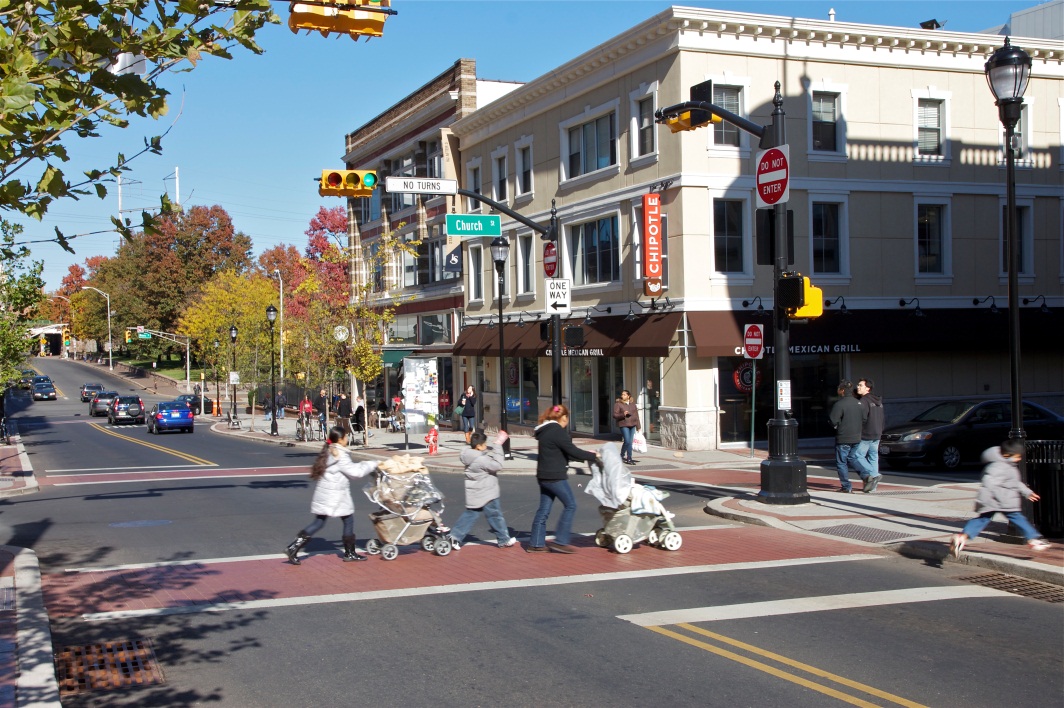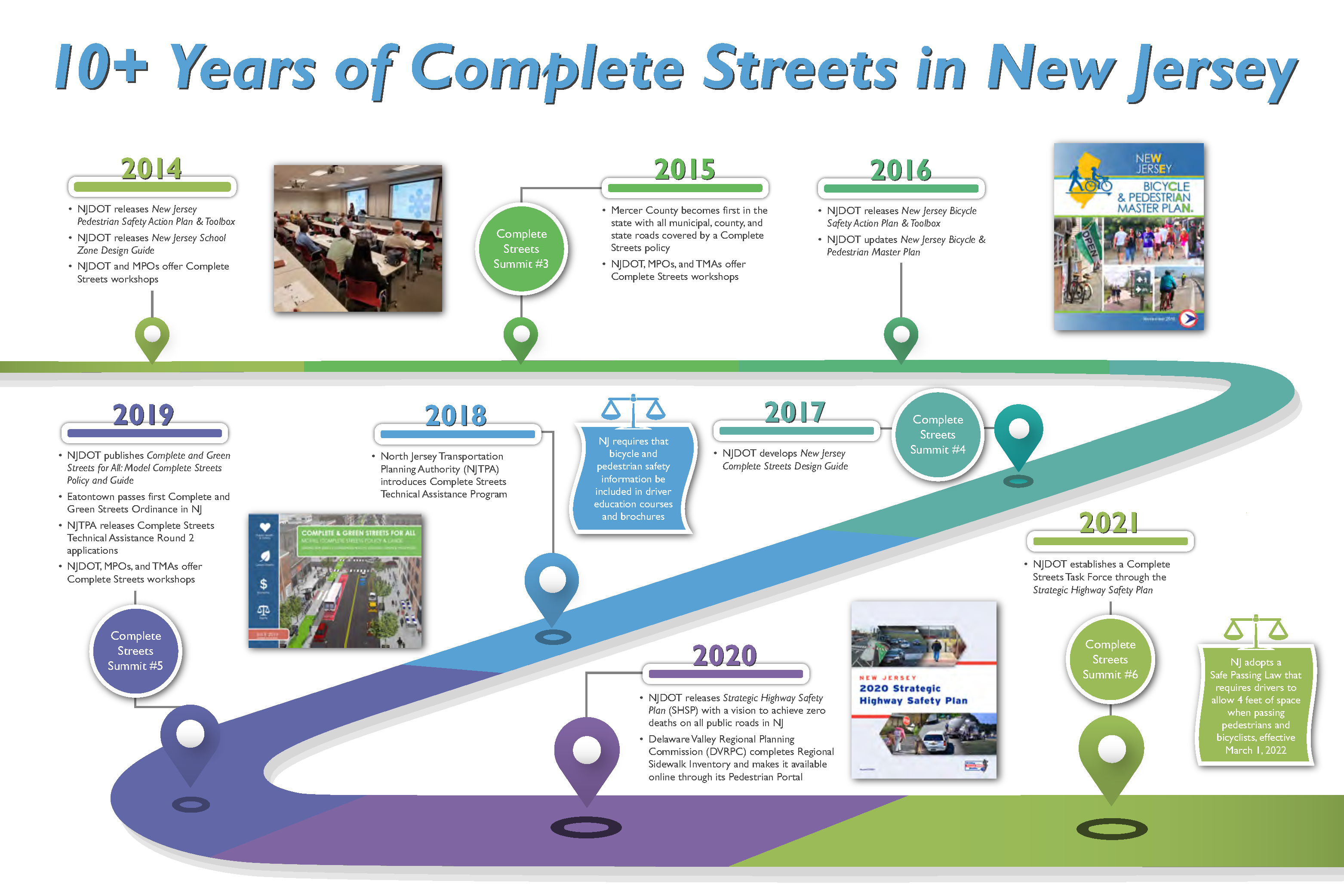About NJ Complete Streets
Complete streets are designed and operated to enable safe access for all users – pedestrians, bicyclists, motorists and transit riders of all ages and abilities. Instituting a Complete Streets policy ensures that agencies routinely design and operate the entire right of way to enable safe access for all users. New Jersey has become a national leader in the Complete Streets movement, being among the first states in the US to adopt a Complete Streets policy.
NJ Complete Street Case Studies
Head on over to our Complete Streets Reports webpage to explore Complete Streets case studies in New Jersey! These reports explore the history of the individual Complete Streets policies, including how the policy was developed, promoted, and implemented. Success and challenges are highlighted for the benefit of other communities looking to implement Complete Streets. Additionally, each report includes a number of next steps to provide readers with insight into the policy’s future. The reports serve as a valuable tool for engineers, planners, elected officials, and advocates who want to move forward with Complete Streets in their communities.
How can I learn more about complete streets?
There are several organizations and resources in New Jersey that can help with developing and implementing local Complete Streets policies, including:
- Visit our webpage on all adopted New Jersey Complete Streets policies around New Jersey.
- The New Jersey Department of Transportation (NJDOT) Complete Streets website includes information on success stories, workshops, etc. NJDOT also provides the 2017 State of New Jersey Complete Streets Design Guide which presents tools and methodologies for design Complete Streets in a variety of settings, with attention to the specific needs of each community.
You can also watch our various videos on complete streets topics!

Other Complete Streets Resources
- Visit our New Jersey Complete Streets Training webpage for information on upcoming trainings!
- The North Jersey Transportation Planning Authority’s Complete Streets Technical Assistance Program, in partnership with Sustainable Jersey and the Alan M. Voorhees Transportation Center, offers free technical support to participating municipalities to help advance their Complete Streets initiatives.
- The South Jersey Transportation Planning Organization’s Complete Streets Technical Assistance Program, in partnership with Sustainable Jersey, Cross County Connection, and the Alan M. Voorhees Transportation Center, offers free technical support to participating municipalities to help advance their Complete Streets initiatives.
- The Delaware Valley Regional Planning Commission’s Transportation and Community Development Initiative (TCDI) is a grant opportunity that funds local planning initiatives linking land use, transportation, and economic development planning.
- Complete Streets and New Jersey Safe Routes to School work together to advocate for and to strengthen the practice of safely walking and bicycling to and from schools and throughout New Jersey communities.
- Zero Deaths Initiatives & the Safe System Approach are initiatives working to eliminate traffic-related fatalities across the United States.
The New Jersey Department of Transportation gives special consideration to municipalities with adopted Complete Streets policies when reviewing applications submitted for federal and most state grant funding opportunities.

